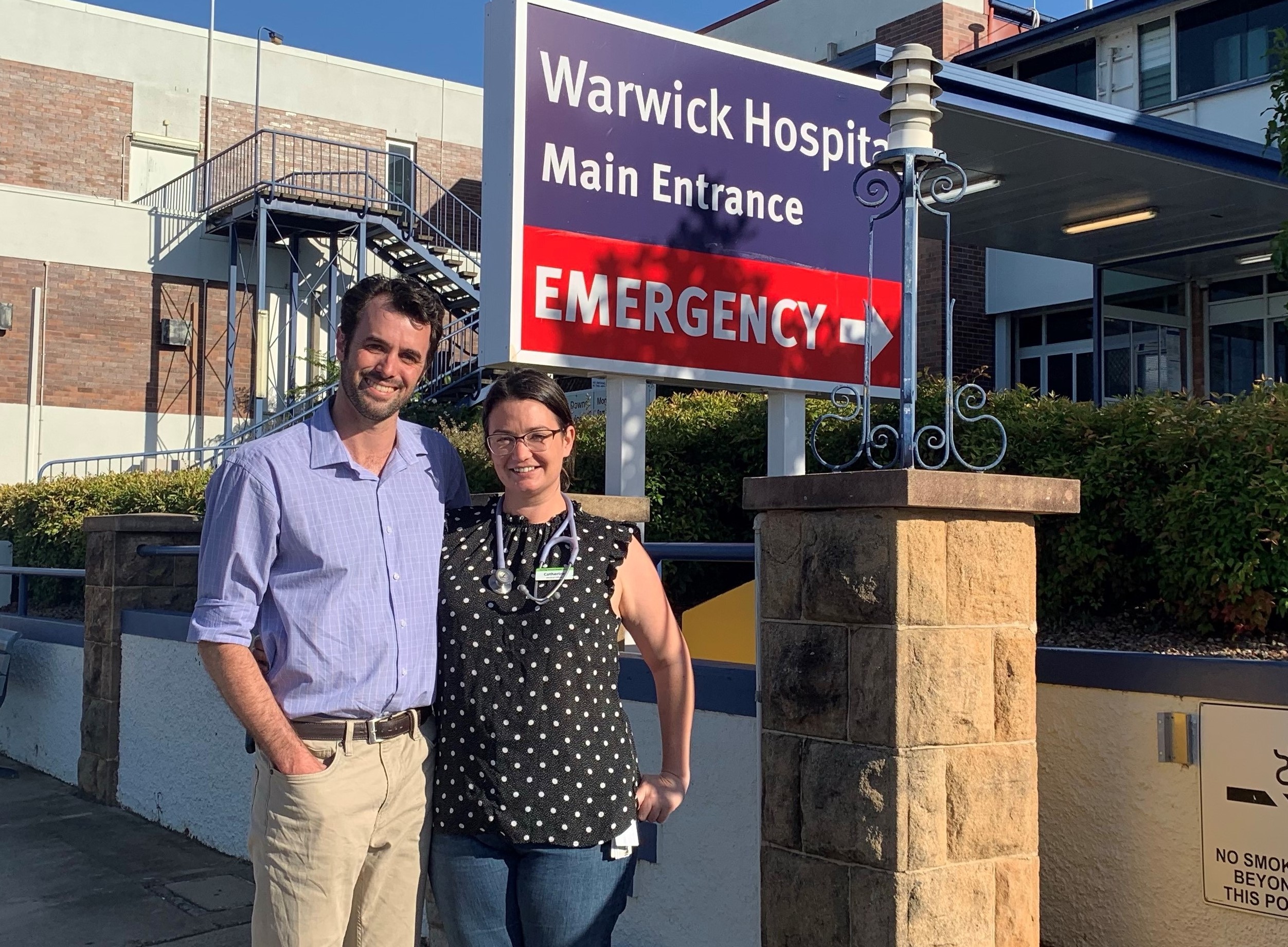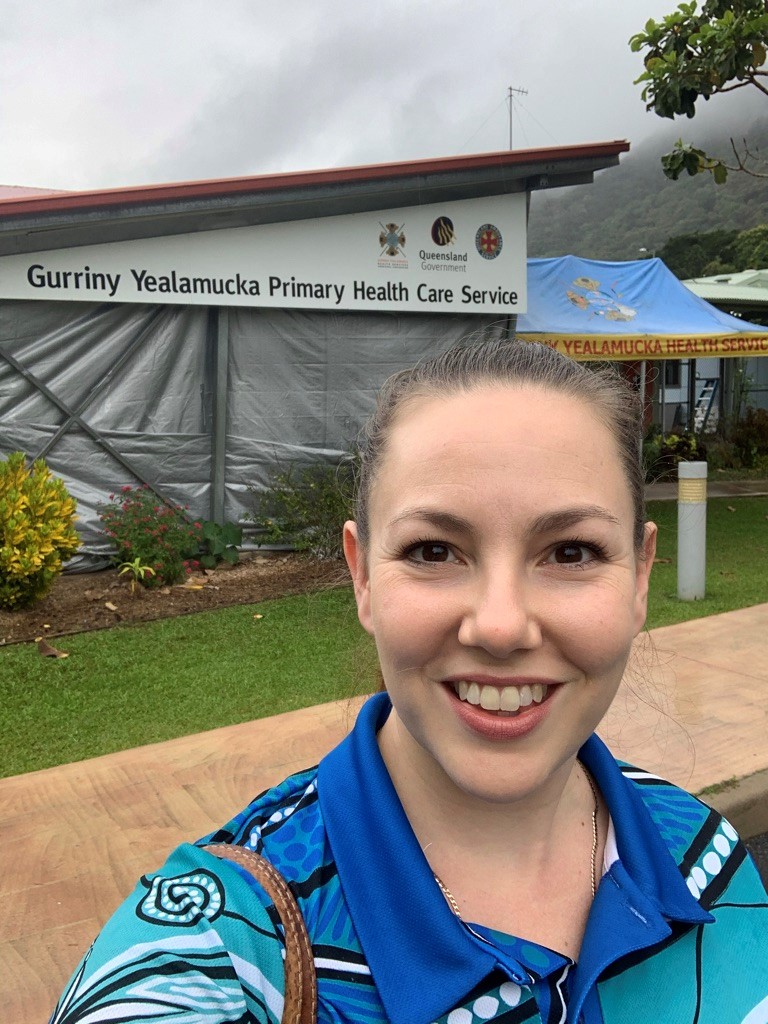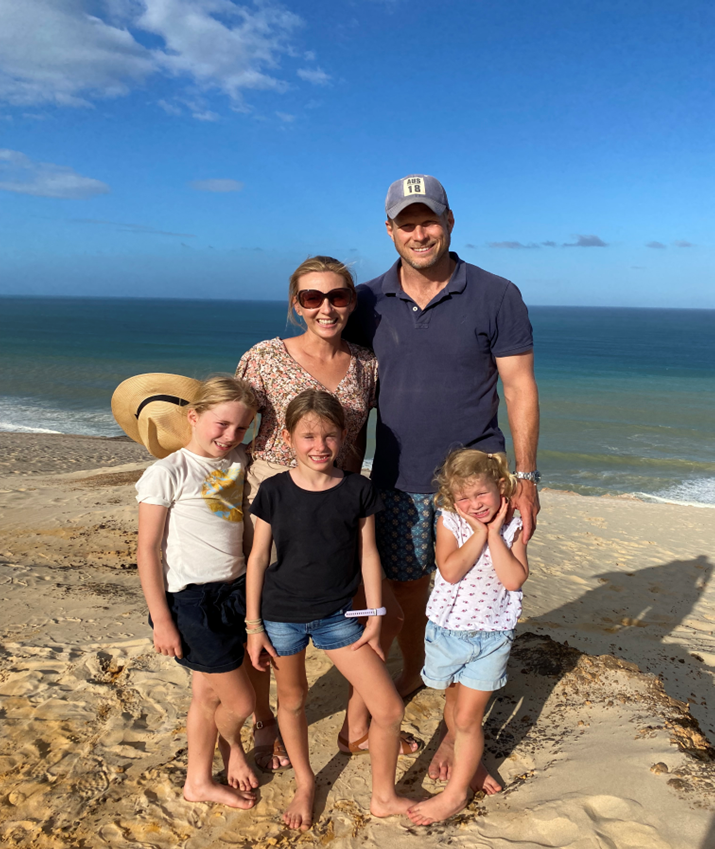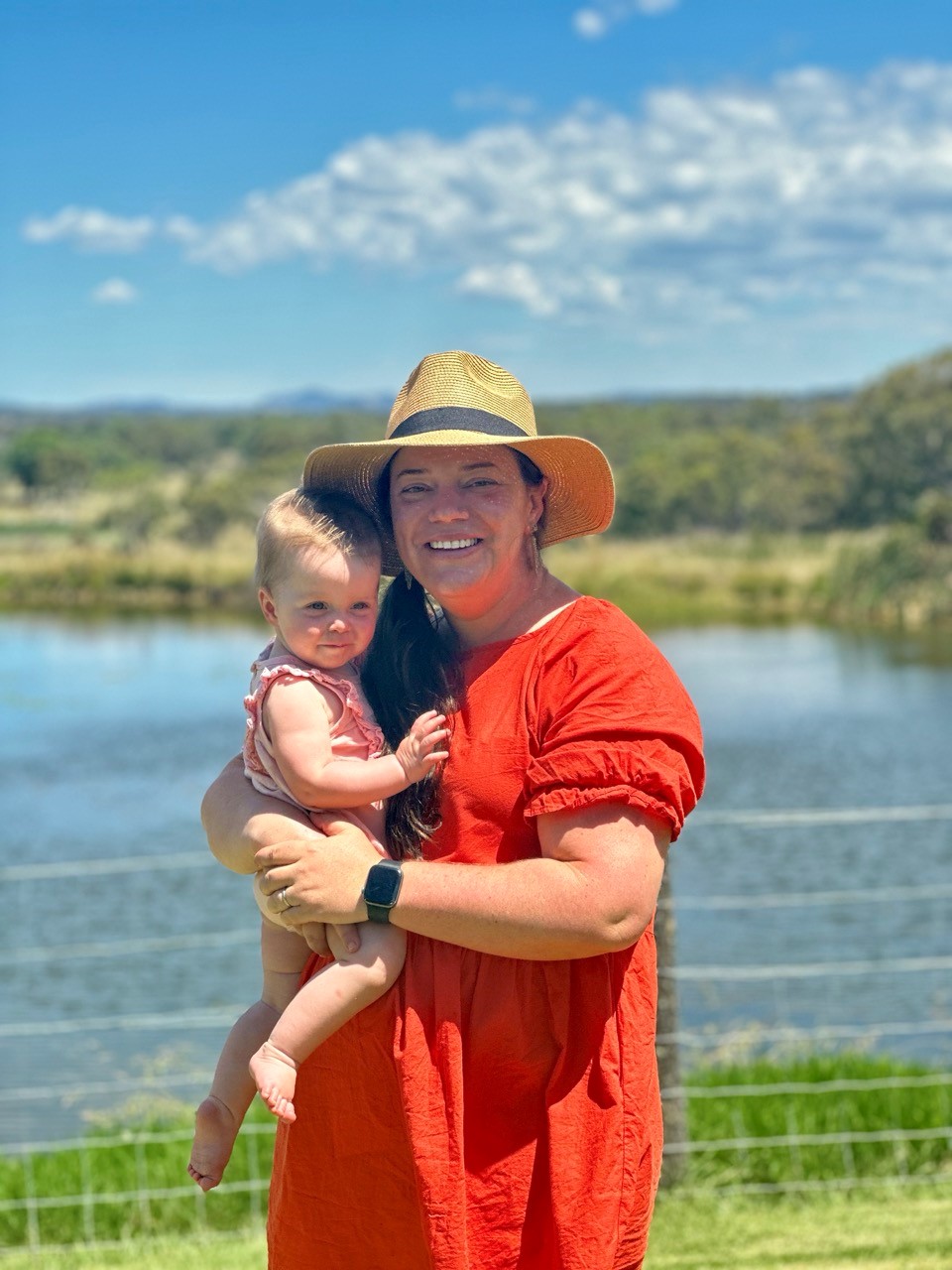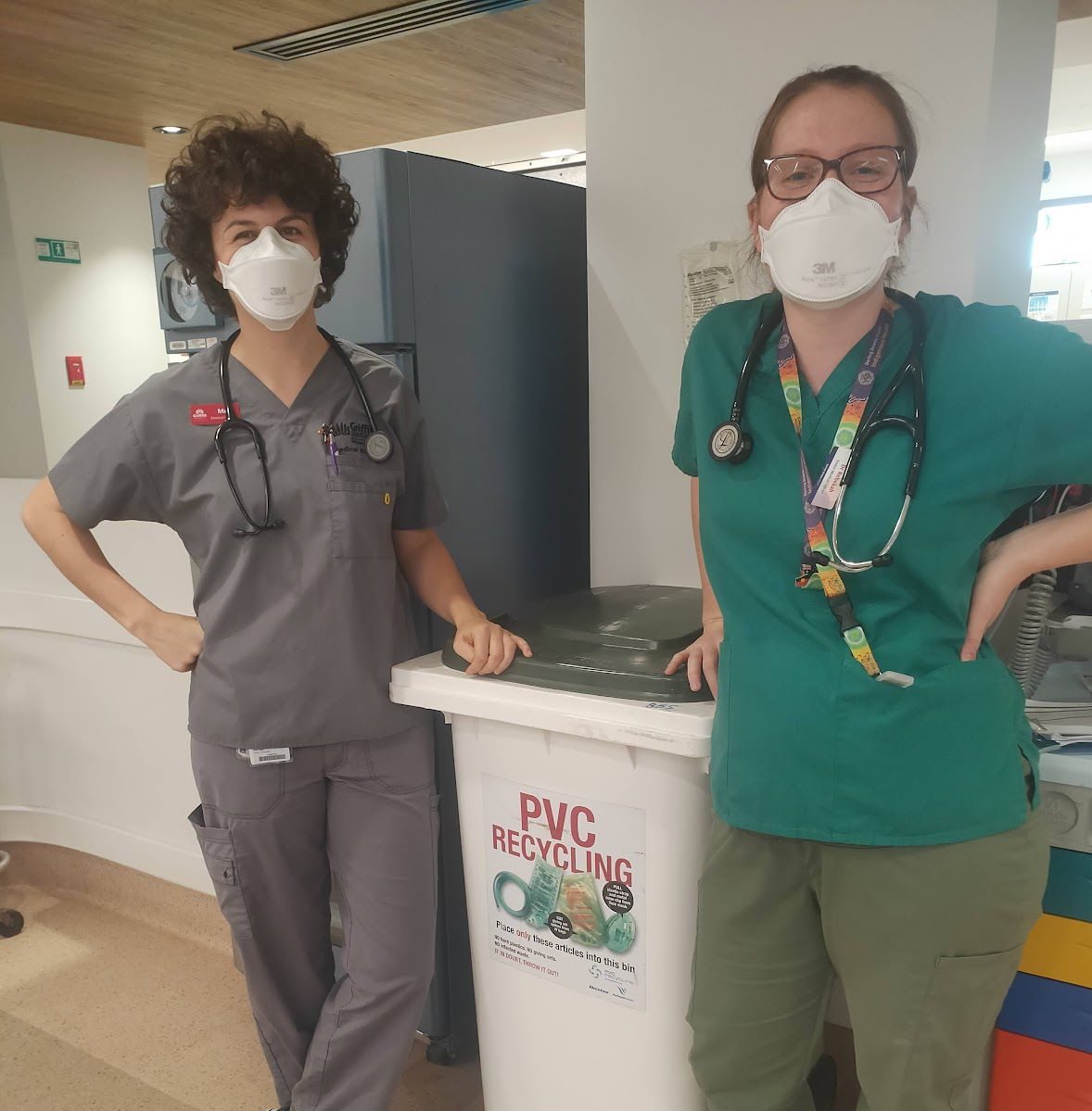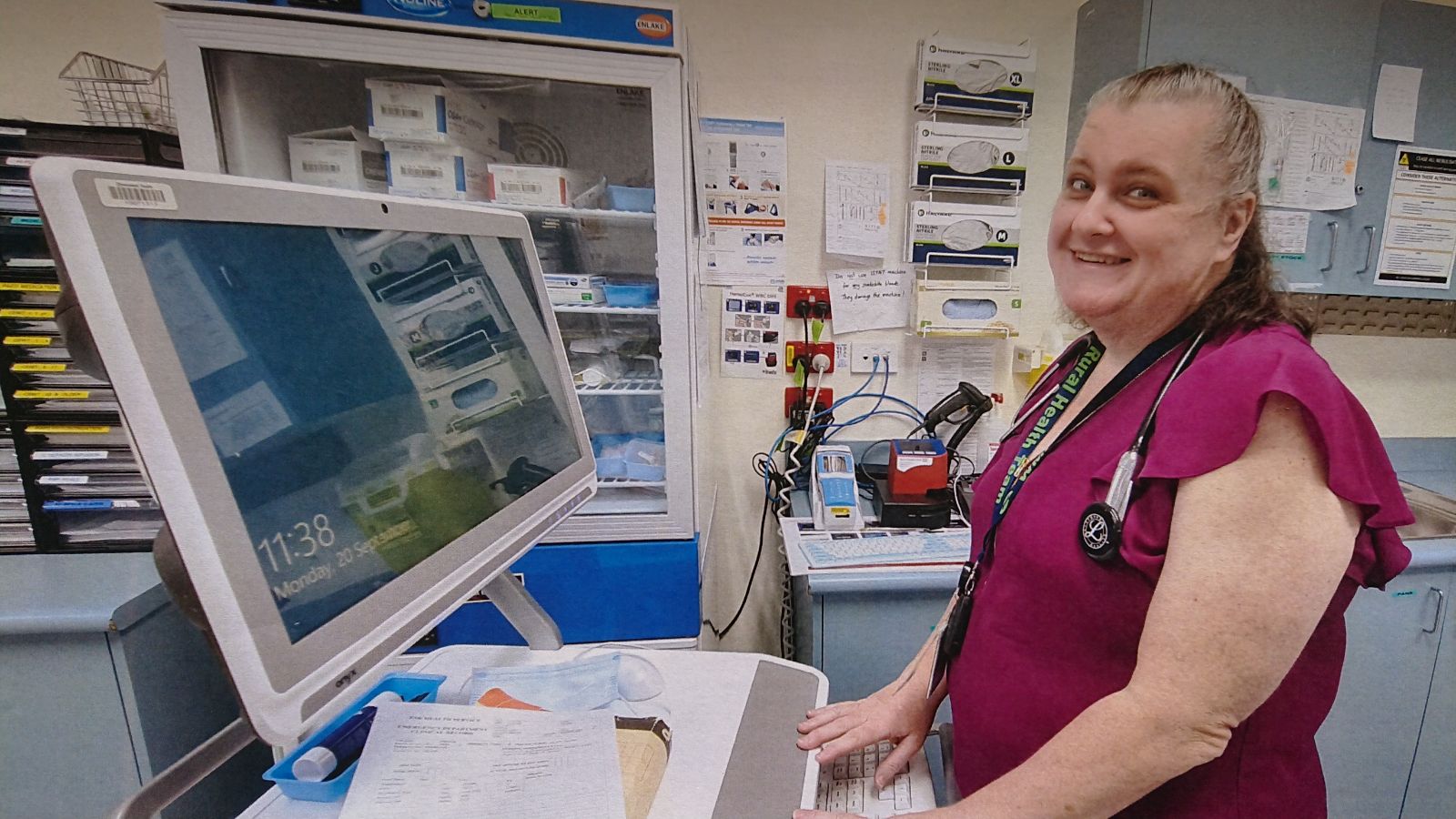Senior Medical Officers (PF) / GP | Warwick Hospital and Condamine Medical Centre
Brent is an ACRRM Fellow with an advanced skill in anaesthetics and Catherine has an advanced skill in obstetrics and gynaecology. They’ve been together since their QRGP internship in 2013 and have lived and worked in Warwick since 2016. They’re one of 15 couples to undertake training with the QRGP.
Brent and Catherine have carefully navigated their rural generalist training as a couple and are now enjoying the rewards of living and working rurally and putting their training to good use.
They say the positives of being married and working so closely together far outweigh the challenges. “We often work on opposite schedules, yet when we do work together there is mutual and practical support. We have a level of understanding of each other and a knowledge of each other’s experience. There is a trust factor which is really useful. Plus, it’s nice at the end of your day to be able to talk about your day and debrief. We’ve been able to learn from each other’s experience too.”
The hospital and general practice have been really considerate of the impact on their family when it comes to rostering. “There is flexibility with time schedules and rosters. Both organisations want to keep us and consider us as individuals and as a contributing couple. They think about our needs too, which is great.”
Childcare logistics are the main challenge for Brent and Catherine. Balancing their roles as dedicated community doctors and parents to their two-year-old son Bertie and Brent’s 11 year old daughter Abby can be a little tricky, “It’s one of the things that forces you to have a good balance between work and life”.
Catherine took time off for maternity leave and returned on a part time basis. They did not have any family supports in town so relied on child care on her return to work. Both of their employers were really accommodating and allowed Catherine a set roster and adapted the roster to avoid clashes with their on call duties.
“We have family who will come out and stay from Brisbane to help with childcare in the school holidays, however we have needed that less and less as time has gone by and we have started forming friendships and connections within the community. Abby often spends a day with her horse riding instructor helping out with the animals or is happy to spend a day with family friends if we have to work. It is really lovely as it helps her form connections in Warwick as well.”
Patients are very supportive and are pleased the couple have settled into the area. “Patients are happy that the two of us, together, moved to their town as they feel we are more likely to stay in the community.” Although sometimes patients can think they share a brain. “A funny thing is that if a patient sees your spouse, then they think you know all about them too!”
To achieve their end goal of working together, Brent and Catherine began planning early. They started by choosing different advanced skills based on the size and services of the town they wanted to work in and thought about how their skills would contribute to the hospital roster and the community. “As a couple we thought about complementary skills that we would enjoy maintaining, because in the end it’s the skill set needed in that community that gets you the job.”
Applying for procedural advanced skills training as a couple proved difficult. “We deliberately chose a location less likely to be subscribed and had plans A, B and C including alternative options for advanced skills. We found the Advanced Skills Training to be a very intense year as a doctors in training couple and involved a lot of personal sacrifices”. Brent suggests couples with children could consider training one at a time to help find a balance, although their strategy was to complete their training as soon as possible. “We knuckled down and worked hard to get the training years done and out of the way, so we had more flexibility when we got to GP and rural.”
Support from mentors and the QRGP was particularly helpful during their training years and Brent and Catherine established a strong network of peers, mentors and senior colleagues which helped them navigate their future direction. “The hospital years and allocated placements really helped us to get on the right track. Also, the Pathway’s training days are useful particularly in the connections you make and the skills you learn.”
The connections they made via the Pathway led them to securing their jobs in Warwick where they have continued to benefit from working with other Rural Generalists. “There is a wealth of knowledge and skills we see being used at both the general practice and hospital that is wonderful to learn from on a daily basis. Working rurally allows us a broad scope of practice within a relatively small workforce and the benefit of a close relationship with senior staff.”
For Brent and Catherine, the best thing about being Rural Generalists in Warwick is the link they have with the community. “We have the power to contribute to and make valuable changes in the community where we live. There is a continuity of care between the hospital and general practice, not only with patients, but with doctors too. We are able to explain the processes, what the doctors are like and who they will see. It helps to change health literacy and perspectives about health care.”
Brent and Catherine are grateful that their jobs allow them to be flexible, giving time for a growing family and life outside of work as well as developing skills and experience in their careers. “We are excited about our future as Rural Generalists, where we settle in a town, get to work with people with similar goals and make a difference in our community.”


